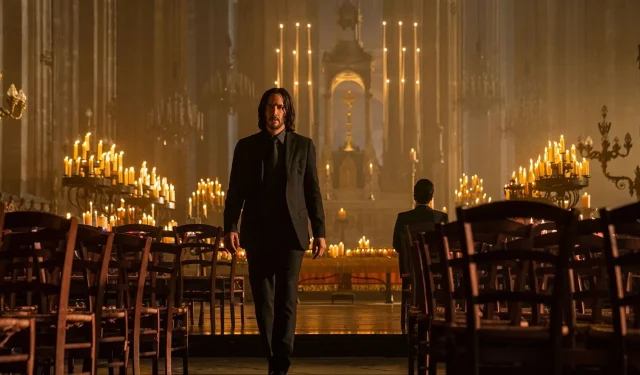
Lionsgate is making a substantial investment in generative Artificial Intelligence. As reported by The Hollywood Reporter, Lionsgate has formed a partnership with Runway, granting them access to the studio’s extensive media archive for algorithm training.
This exclusive agreement enables Runway to create an AI model tailored specifically to Lionsgate’s proprietary film and television portfolio, aimed at assisting creatives in enhancing their projects.
In recent years, Lionsgate has earned a reputation for crafting blockbuster franchises, such as John Wick, on relatively modest budgets. This strategic move into AI is perceived as a cost-saving initiative, as highlighted by vice chair Michael Burns:
“Runway is a visionary, best-in-class partner who will help us utilize AI to develop cutting-edge, capital-efficient content creation opportunities. Several of our filmmakers are already excited about its potential applications to their preproduction and postproduction process.”
Lionsgate’s Strategic Shift to Generative AI Raises Ethical Questions
Lionsgate’s collaboration with the AI firm Runway may spark concerns within the film industry regarding the ethical implications surrounding AI technology. The emergence of advanced generative AI models like OpenAI’s ChatGPT has intensified discussions in Hollywood.
Fears about AI’s impact on Hollywood’s workforce were pivotal in the 2023 Writers Guild of America (WGA) and SAG-AFTRA strikes, which caused considerable disruption, leading to delays in productions such as Dune: Part Two, Avengers: Doomsday, and Avengers: Secret Wars.
Following the strikes, the WGA and SAG-AFTRA reached agreements with the AMPTP that included regulations governing the use of generative AI in film and television production; however, these agreements did not completely prohibit its use.
Additionally, California’s legislature has passed two significant bills that address the regulation of generative AI, supported by unions. AB 2602 imposes limitations on the use of digital replicas of performers if they are available for in-person work unless clear agreements are in place with the performer or their representatives.
AB 1836 deals with the potential utilization of a digital likeness of a deceased performer, requiring producers to obtain consent from the performer’s estate before employing their digital likeness for any purpose. This bill also revises the “expressive works”exemption in California’s right of publicity law to prevent its misuse by production companies aiming to normalize the use of digital representations.
The ongoing debate regarding AI’s influence on Hollywood labor remains unresolved. Nonetheless, Runway presents the partnership as a means to boost creativity. Runway CEO Cristóbal Valenzuela stated:
“We’re committed to giving artists, creators and studios the best and most powerful tools to augment their workflows and enable new ways of bringing their stories to life.”
Lionsgate stands as a significant player in the film industry, overseeing iconic franchises such as John Wick, The Hunger Games, and Saw.




Leave a Reply